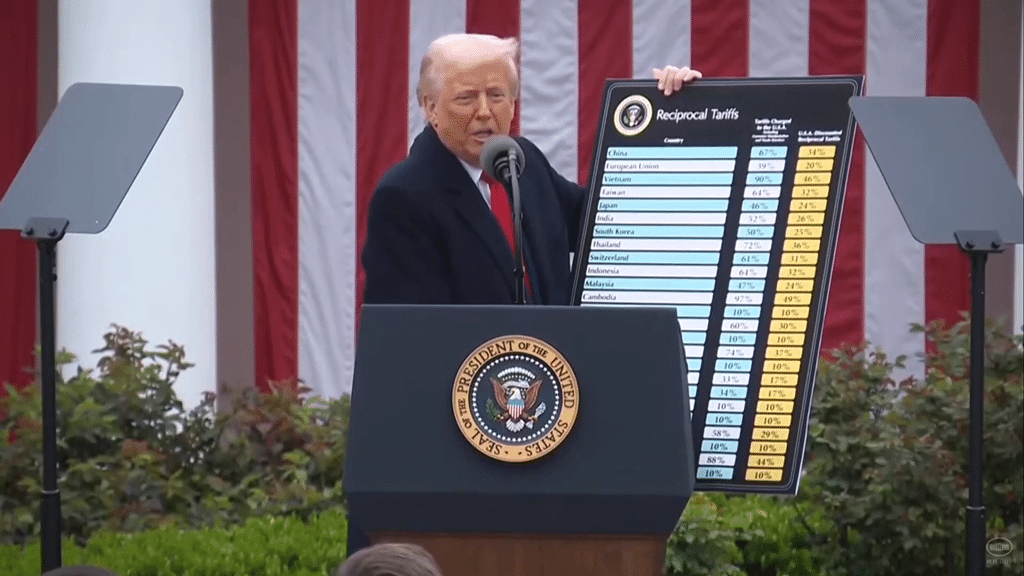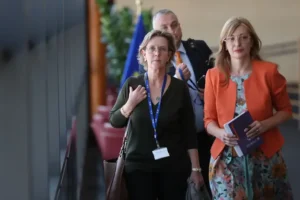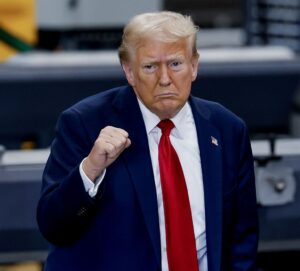Europe already preparing measures to “protect our interests and businesses if negotiations fail”
They arrived in a blaze of ‘stars and spangles’ last night, sending the rest of the world into a frenzy of indignation and threats of retaliation. We are talking about the infamous tariffs US President Donald Trump has been expounding on for the last stress filled weeks and months.
What will they mean for Europe? What will they mean for Portugal and its businesses?
This morning, nothing is actually clear: economy minister Pedro Reis has been ‘on air’ with RTP’s Antena 1 explaining that the government “has been in (discreet) contact with various sectors, identifying possible impacts” for the last few weeks – and now will be the time to actively consult with business leaders and associations (as is happening throughout Europe today).
Reis suggests there is still margin for negotiations (the tariffs are not due to come into effect until next week). But, if negotiations fail, he agrees with the position of the European Union, there will be no alternative but to “act/ reciprocate”.
“A lot of intelligence” however will be needed in whatever retaliatory measures the EU comes up with, so as not to affect European and Portuguese chains of production.
Donald Trump’s list of what he called “reciprocal tariffs” on countries that, in his opinion, have been ripping the United States off for years, range from a baseline of 10% to well over 40% (Cambodia, for example, faces tariffs of 49%).
Europe, which has already been hit by tariffs on steel, is looking at 20% – and a great deal of bad-mouthing from Mr Trump who insists the bloc was created to damage his country’s economy.
Europe is also facing 25% tariffs on importation of vehicles into the United States (along with all other countries).
With China facing much worse (the combination of last night’s new tariffs and existing levies, sees China saddled with charges of over 50% on any goods going into America), the interpretation this far is that the US is forcing a complete rethink in terms of how the world will do business – and this is where the intelligence Pedro Reis talks about will need to come in.
European Commissioner Ursula von der Leyen has said that Europe will first be responding to the steel/ aluminium tariffs announced in February, and then tackle this new challenge
Promising to defend Europe’s interests and values, she emphasised “it is not too late to solve problems through negotiations”.
Should negotiations fail, however, there will be “terrible consequences for millions of people around the world”.
Von der Leyen did have a slightly positive spin, nonetheless, stressing: “Our unity is our strength (…) Europe has the largest single market in the world, 450 million consumers. This is our safe harbour in tumultuous times.” ND
source material: RTP etc



















